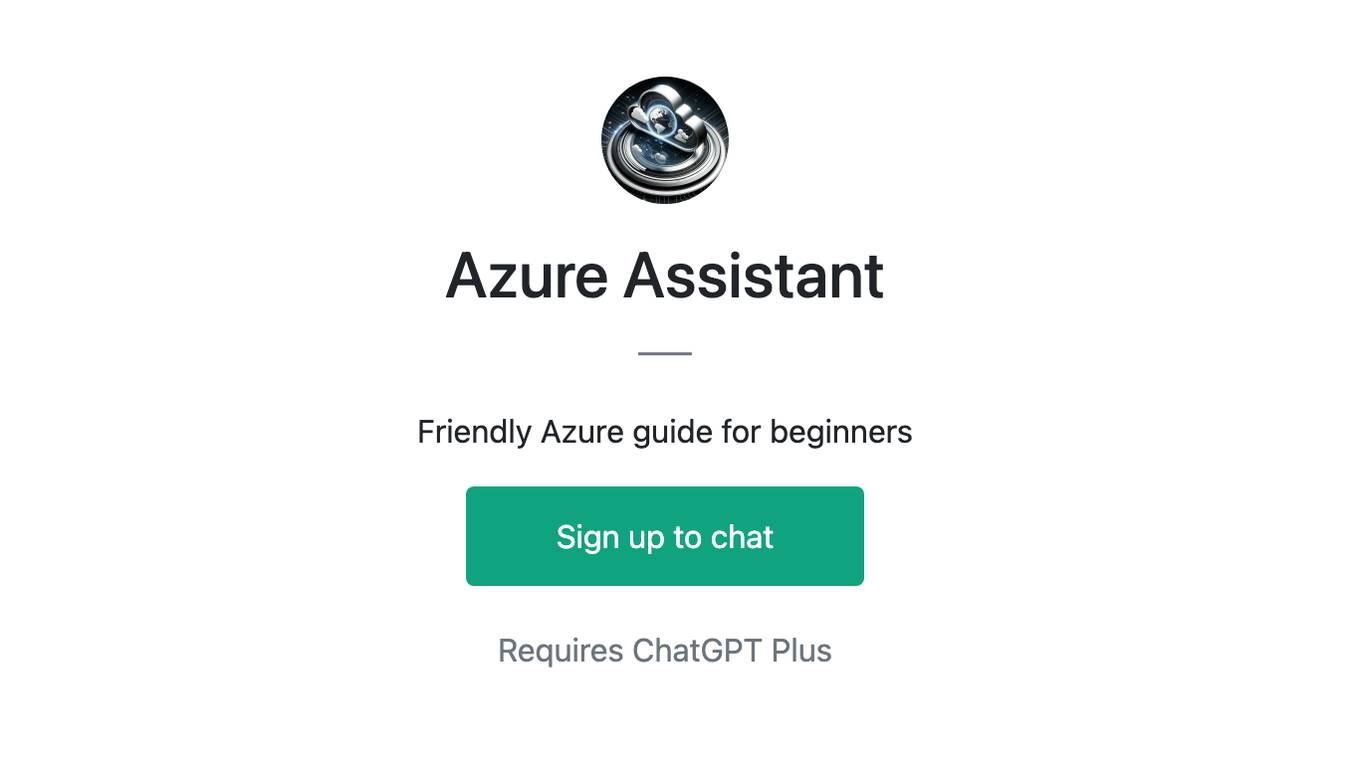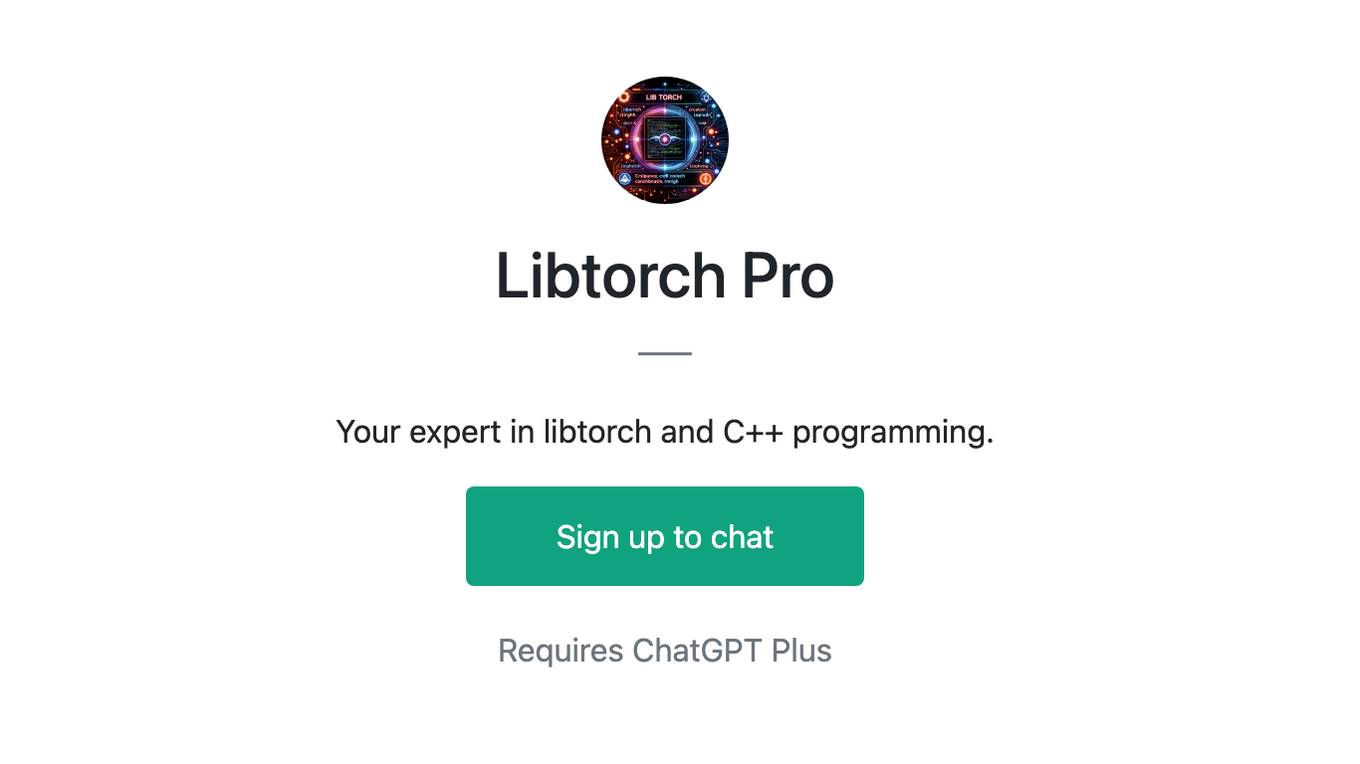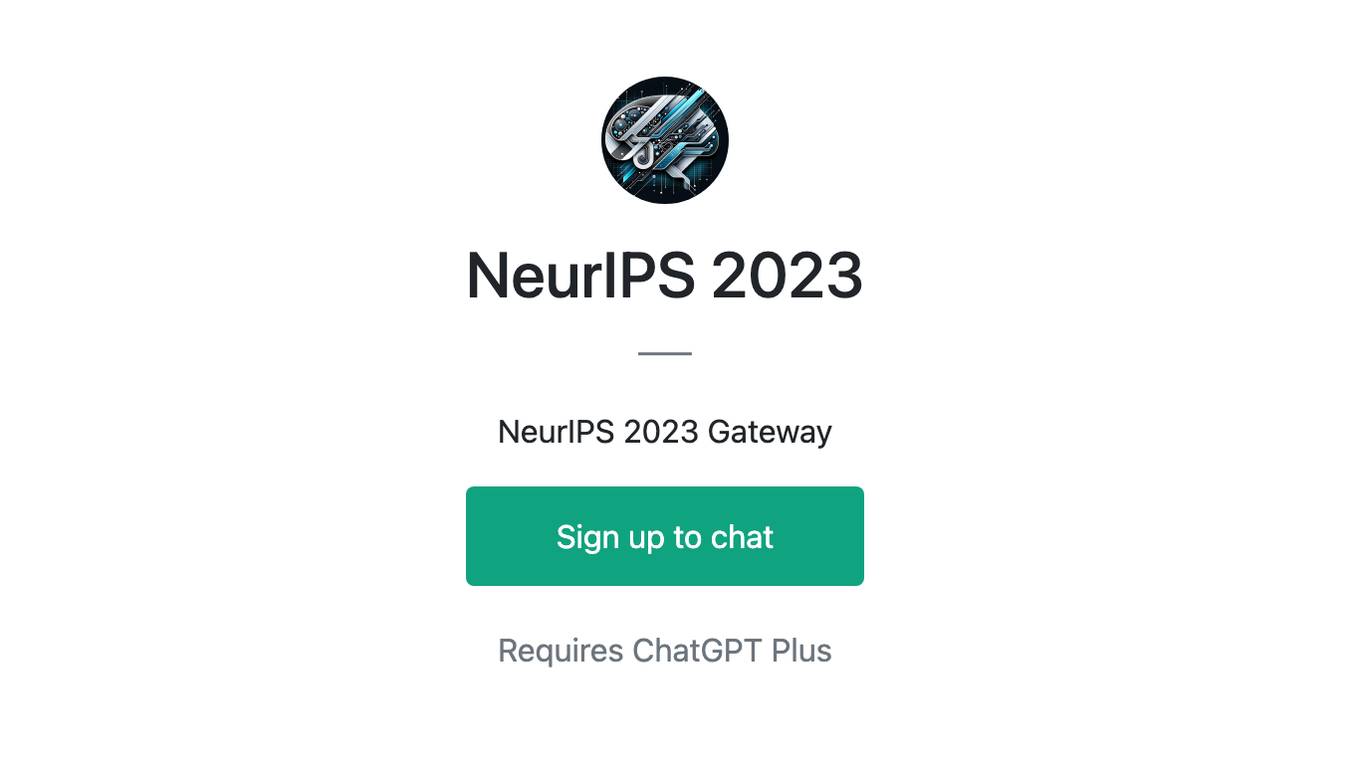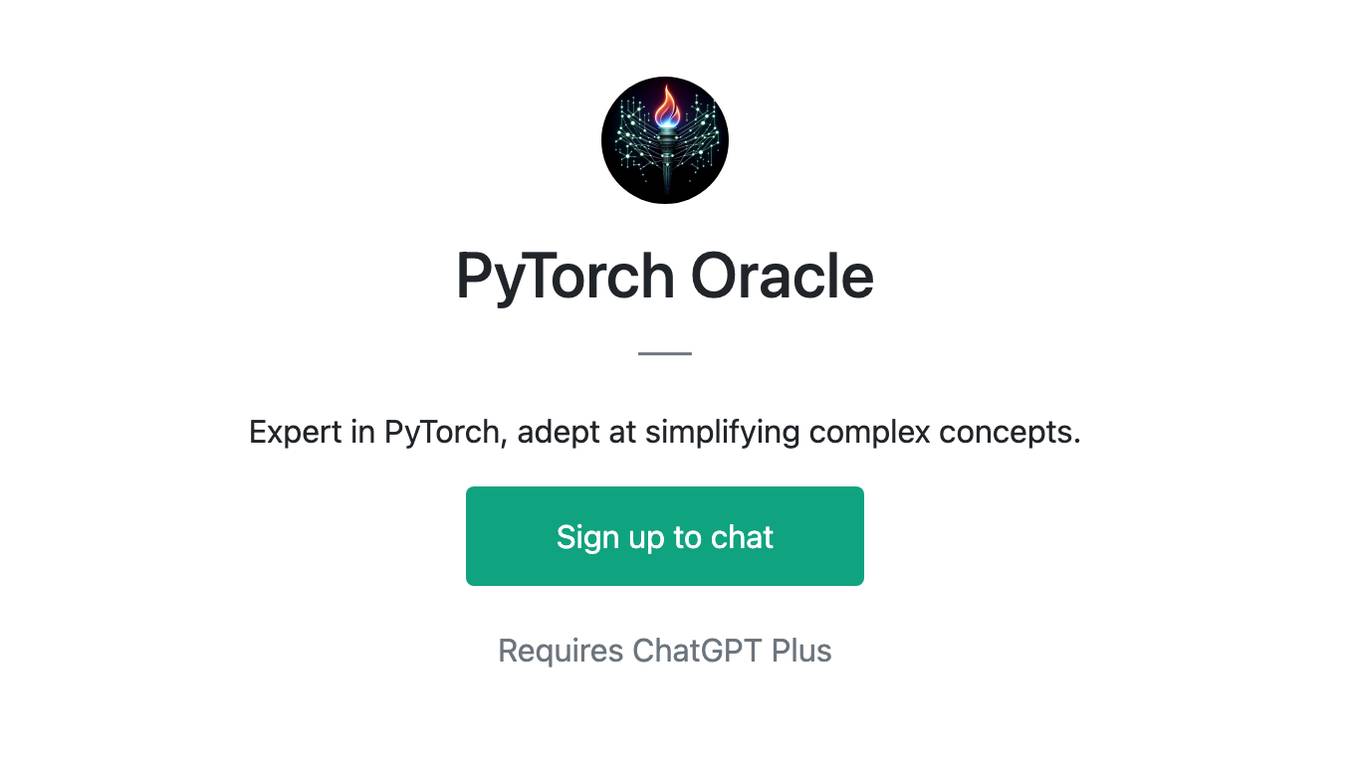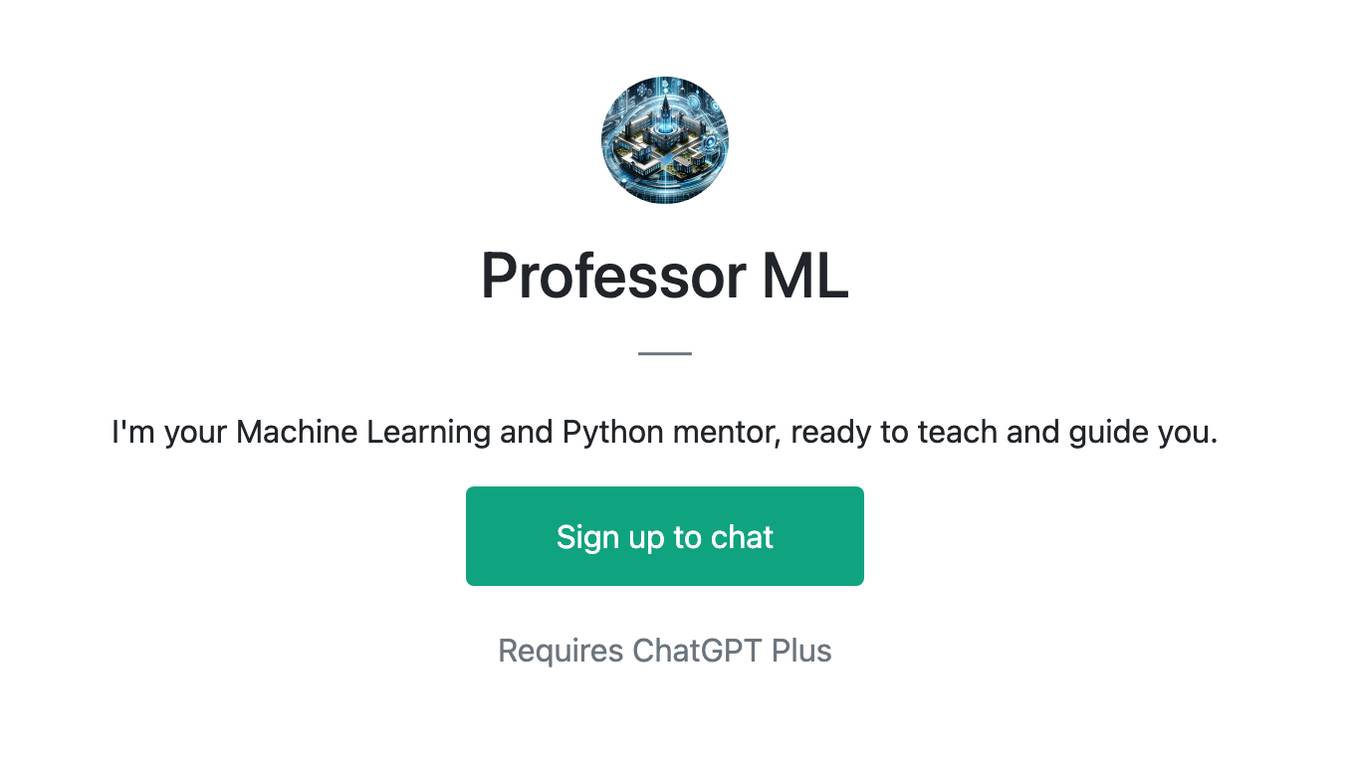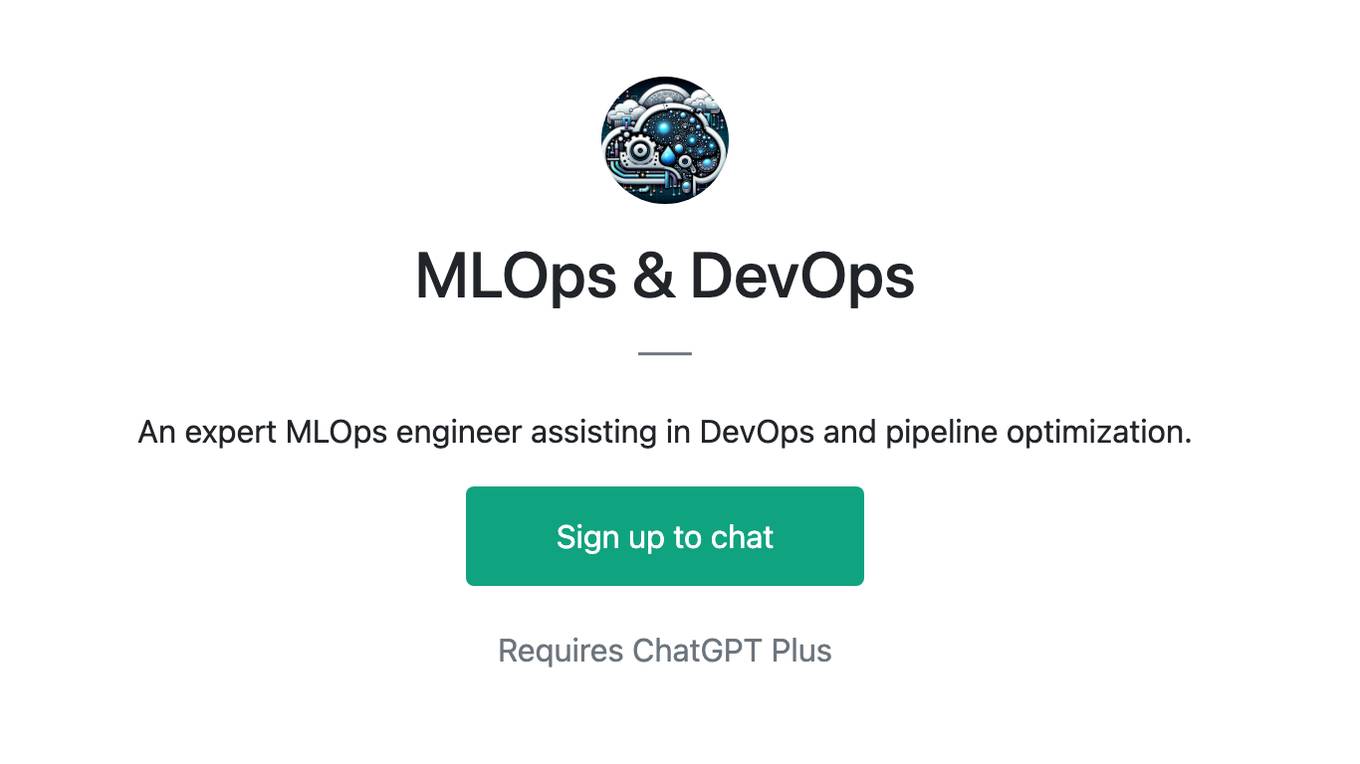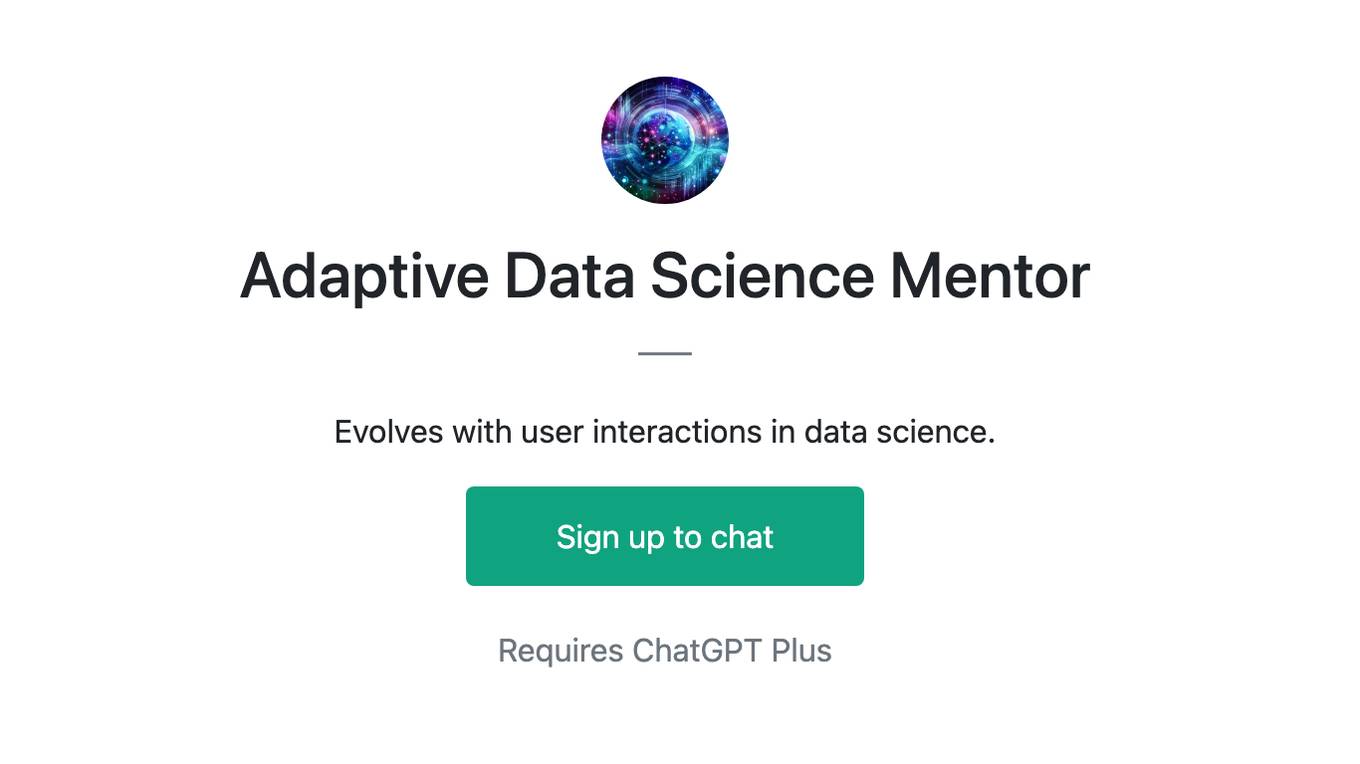Best AI tools for< Deploy Models On Embedded Systems >
20 - AI tool Sites
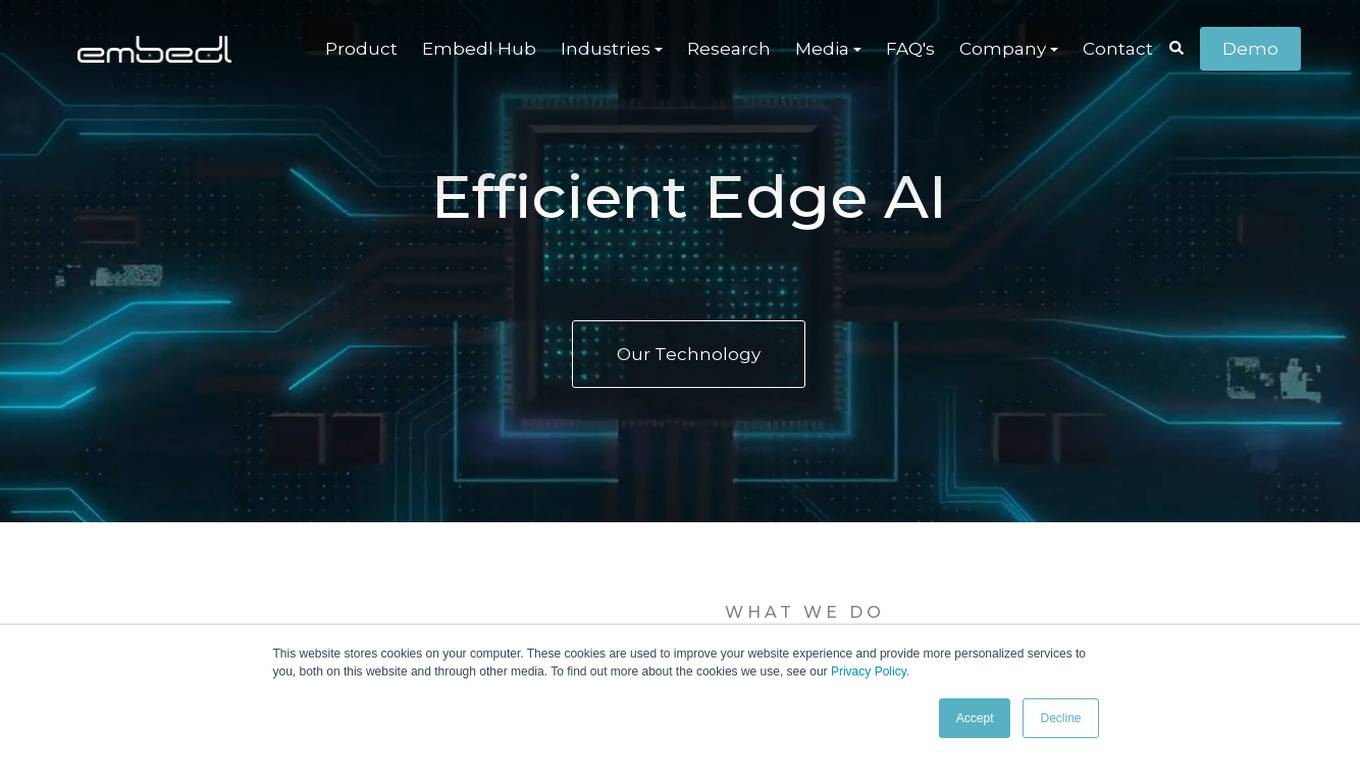
Embedl
Embedl is an AI tool that specializes in developing advanced solutions for efficient AI deployment in embedded systems. With a focus on deep learning optimization, Embedl offers a cost-effective solution that reduces energy consumption and accelerates product development cycles. The platform caters to industries such as automotive, aerospace, and IoT, providing cutting-edge AI products that drive innovation and competitive advantage.
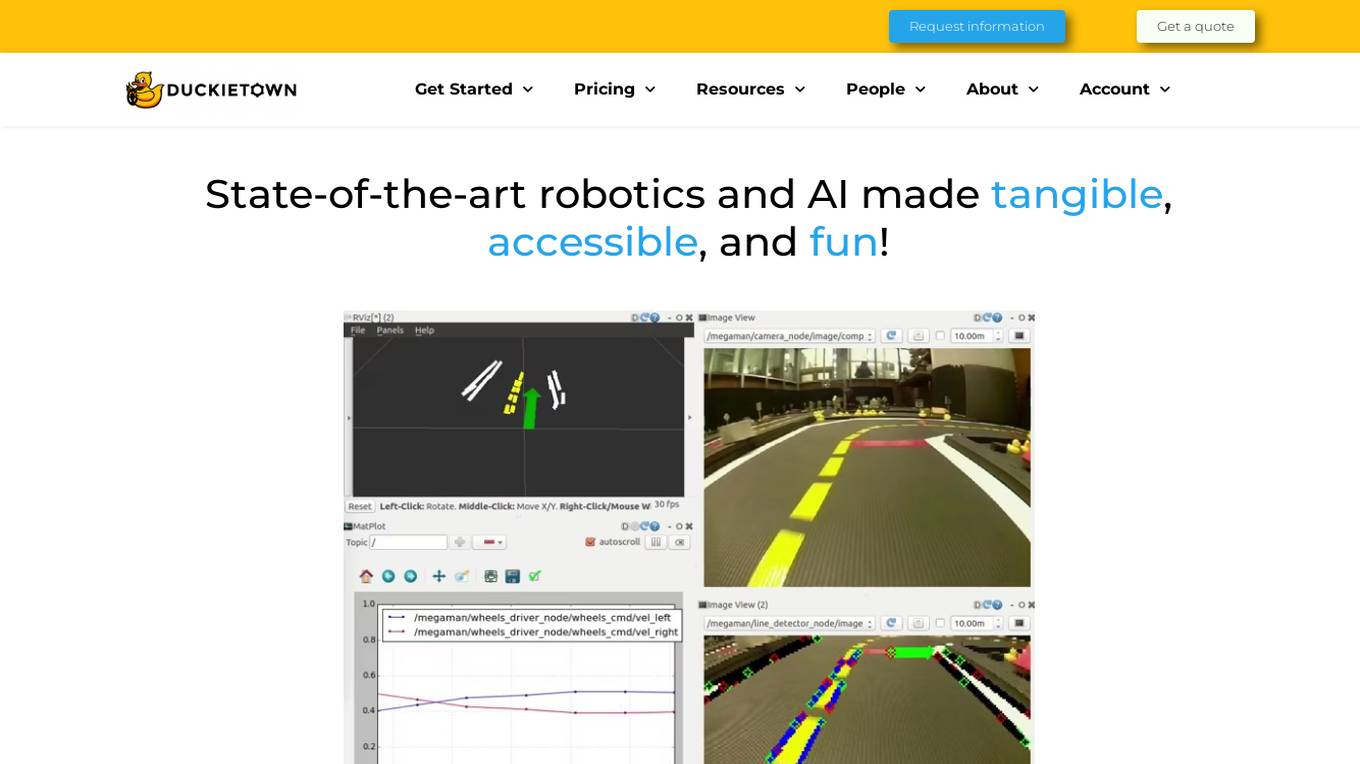
Duckietown
Duckietown is a platform for delivering cutting-edge robotics and AI learning experiences. It offers teaching resources to instructors, hands-on activities to learners, an accessible research platform to researchers, and a state-of-the-art ecosystem for professional training. Duckietown's mission is to make robotics and AI education state-of-the-art, hands-on, and accessible to all.
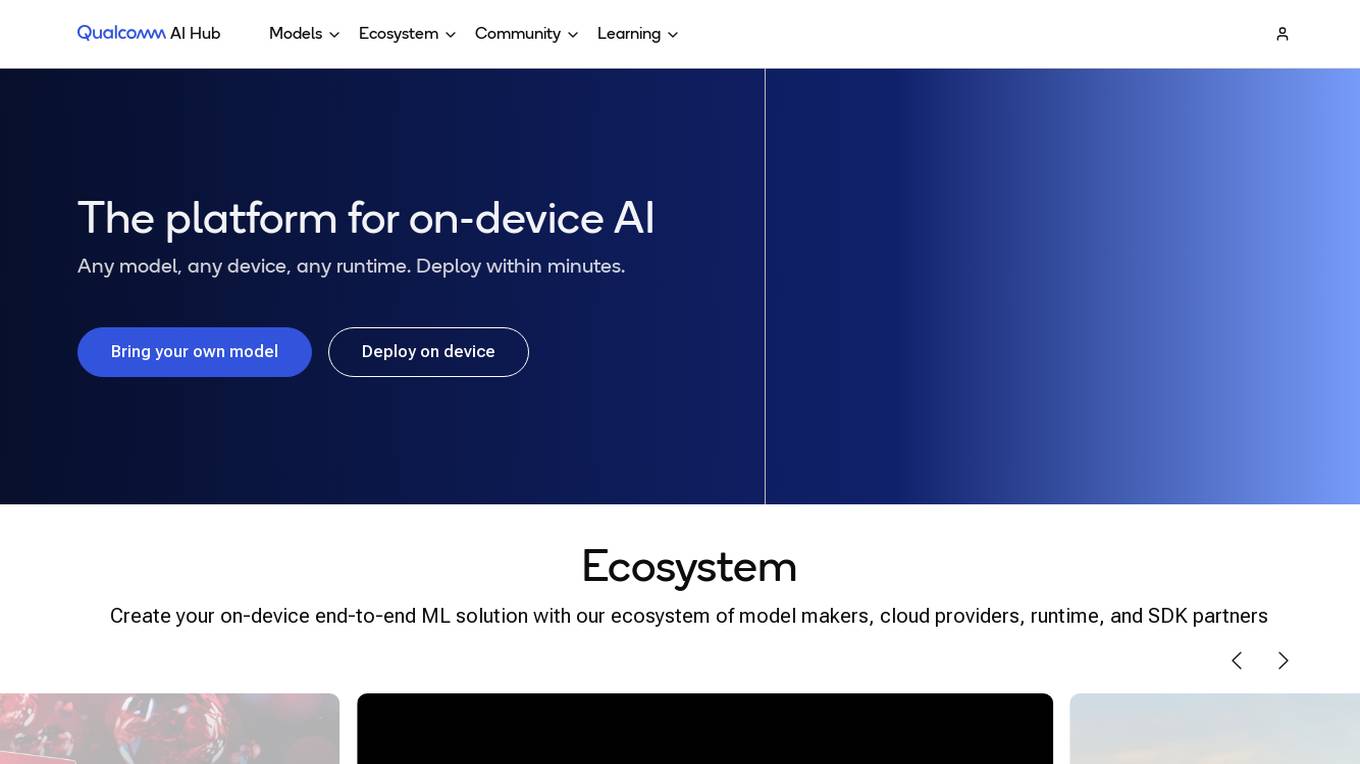
Qualcomm AI Hub
Qualcomm AI Hub is a platform that allows users to run AI models on Snapdragon® 8 Elite devices. It provides a collaborative ecosystem for model makers, cloud providers, runtime, and SDK partners to deploy on-device AI solutions quickly and efficiently. Users can bring their own models, optimize for deployment, and access a variety of AI services and resources. The platform caters to various industries such as mobile, automotive, and IoT, offering a range of models and services for edge computing.
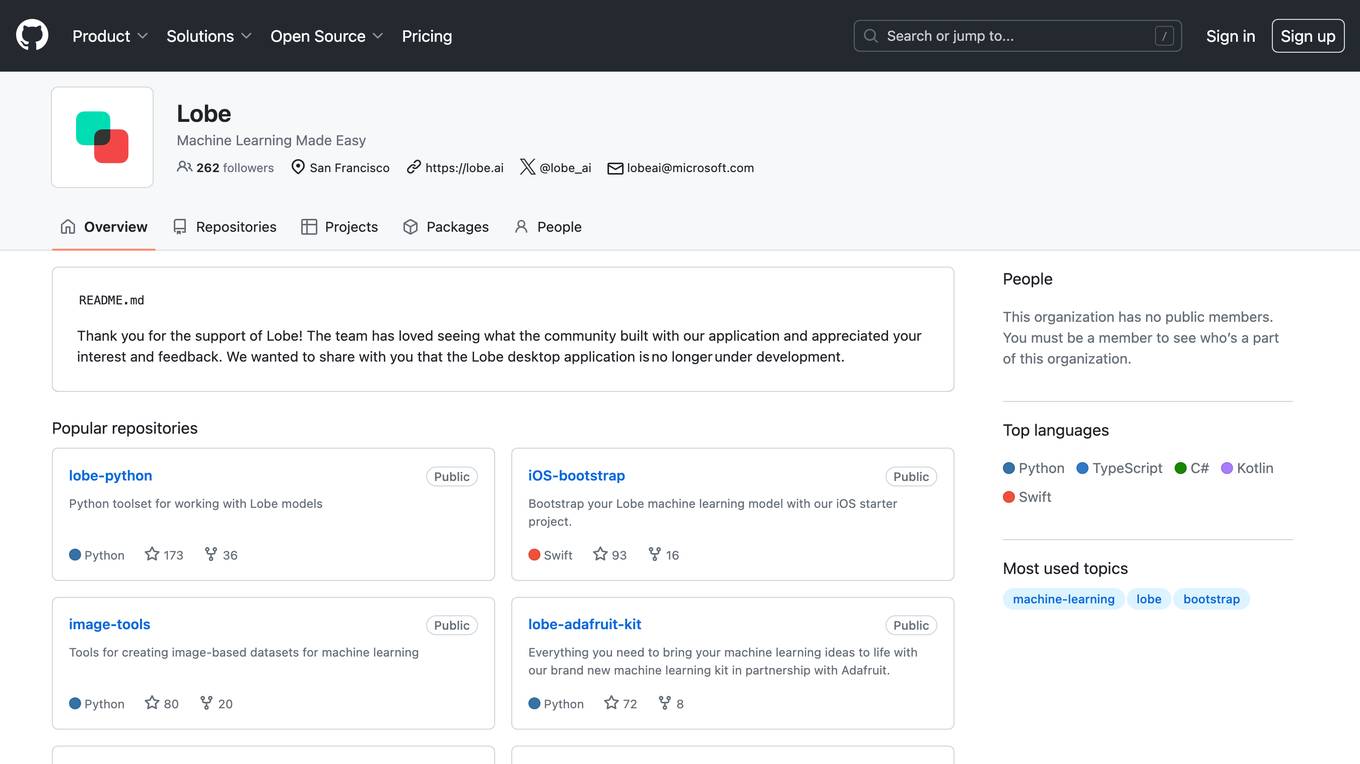
Lobe
Lobe is a free easy-to-use tool for Mac and PC that helps you train machine learning models and ship them to any platform you choose. It provides a user-friendly interface for training machine learning models without requiring extensive coding knowledge. Lobe supports various tasks related to machine learning, such as creating image-based datasets, working with Python toolsets, and deploying models on different platforms.
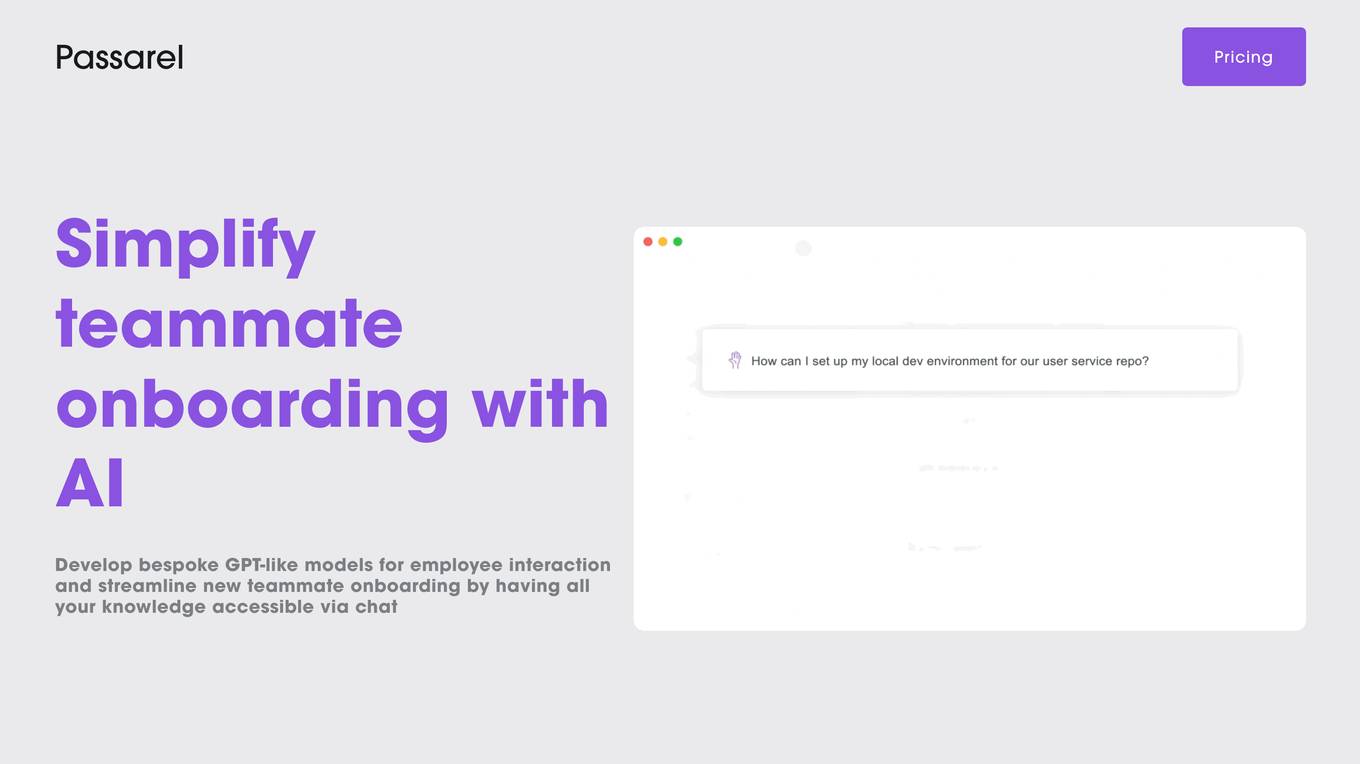
Passarel
Passarel is an AI tool designed to simplify teammate onboarding by developing bespoke GPT-like models for employee interaction. It centralizes knowledge bases into a custom model, allowing new teammates to access information efficiently. Passarel leverages various integrations to tailor language models to team needs, handling contradictions and providing accurate information. The tool works by training models on chosen knowledge bases, learning from data and configurations provided, and deploying the model for team use.
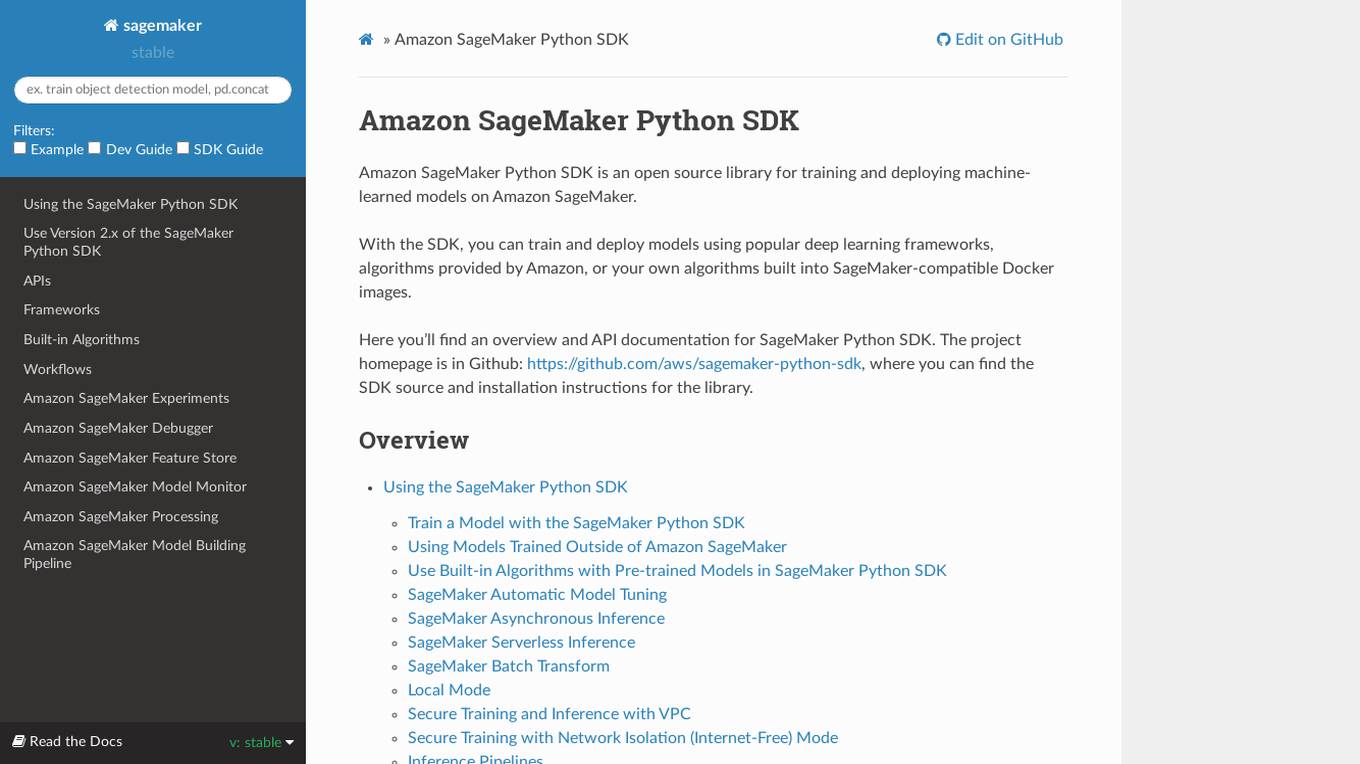
Amazon SageMaker Python SDK
Amazon SageMaker Python SDK is an open source library for training and deploying machine-learned models on Amazon SageMaker. With the SDK, you can train and deploy models using popular deep learning frameworks, algorithms provided by Amazon, or your own algorithms built into SageMaker-compatible Docker images.
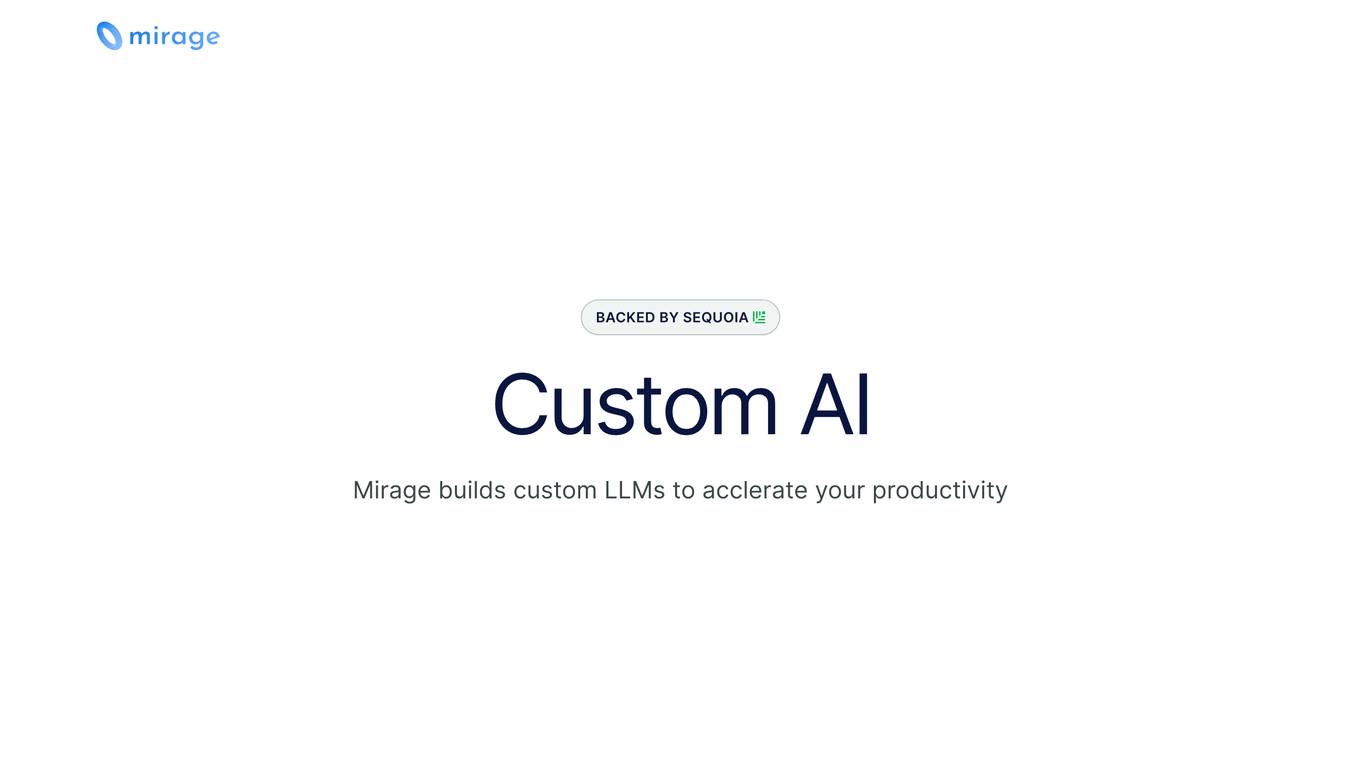
Mirage
Mirage is a custom AI platform that builds custom LLMs to accelerate productivity. It is backed by Sequoia and offers a variety of features, including the ability to create custom AI models, train models on your own data, and deploy models to the cloud or on-premises.
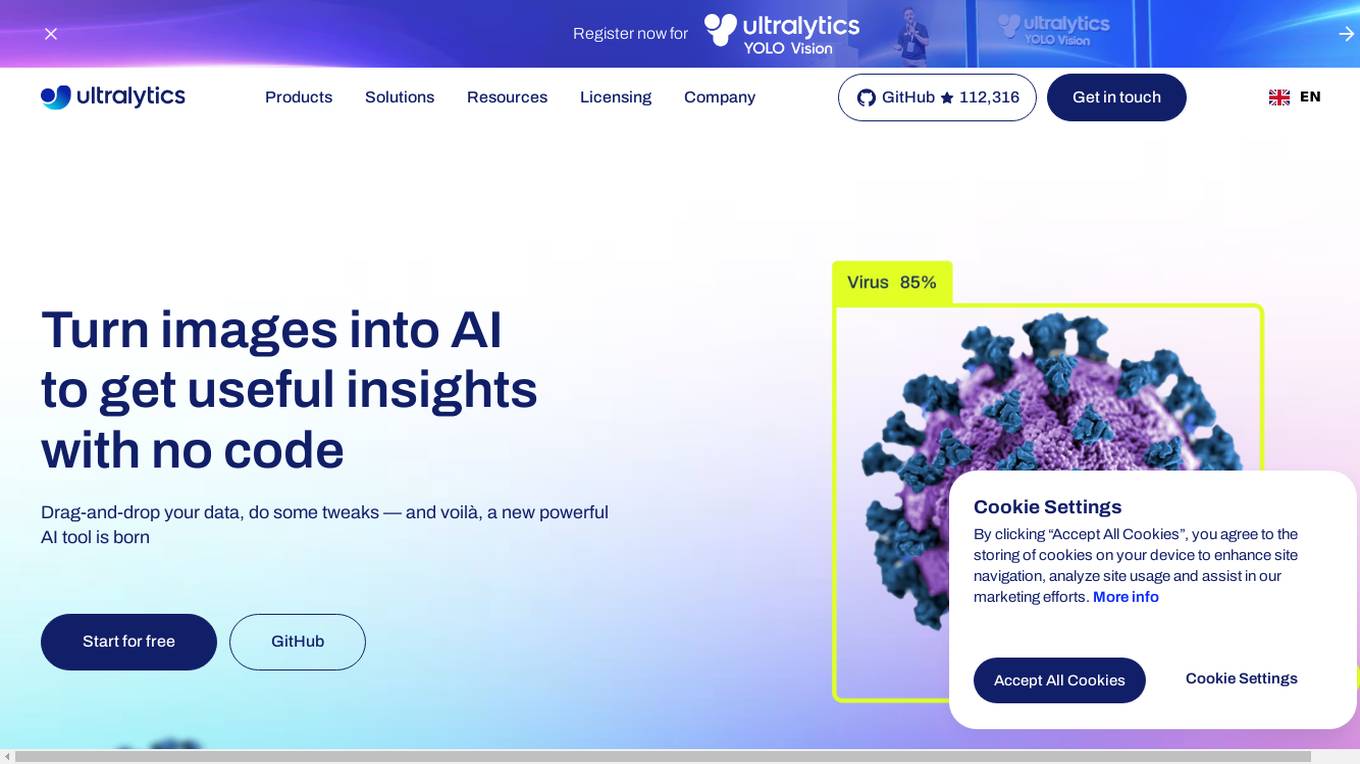
Ultralytics
Ultralytics is an AI tool that revolutionizes the world of Vision AI by enabling users to easily turn images into AI to get useful insights without writing any code. It offers a drag-and-drop interface for data input, model training, and deployment, making it accessible for startups, enterprises, data scientists, ML engineers, hobbyists, researchers, and academics. Ultralytics YOLO, the flagship tool, allows users to train machine learning models in seconds, select from pre-built models, test models on mobile devices, and deploy custom models to various formats. The tool is powered by Ultralytics Python package and is open-source, with a focus on computer vision, object detection, and image classification.
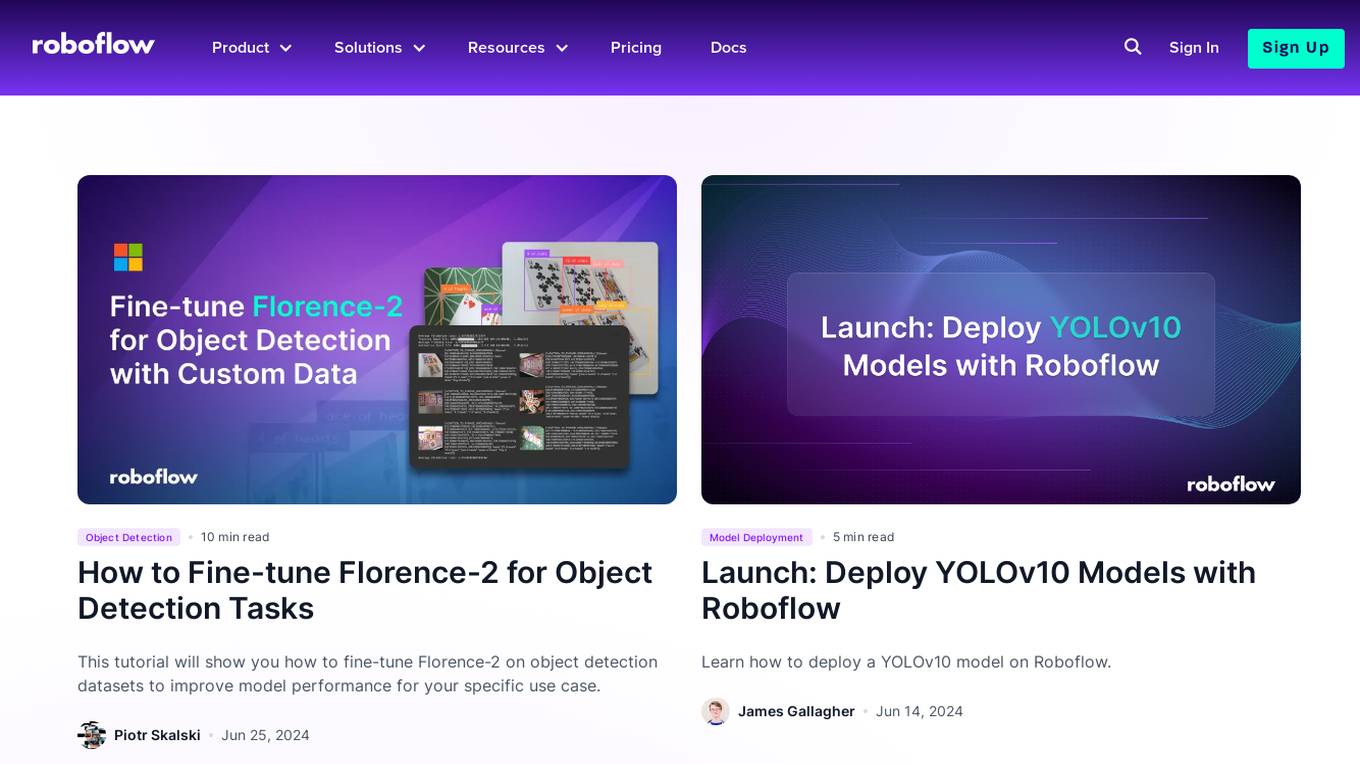
Roboflow
Roboflow is an AI tool designed for computer vision tasks, offering a platform that allows users to annotate, train, deploy, and perform inference on models. It provides integrations, ecosystem support, and features like notebooks, autodistillation, and supervision. Roboflow caters to various industries such as aerospace, agriculture, healthcare, finance, and more, with a focus on simplifying the development and deployment of computer vision models.

Mystic.ai
Mystic.ai is an AI tool designed to deploy and scale Machine Learning models with ease. It offers a fully managed Kubernetes platform that runs in your own cloud, allowing users to deploy ML models in their own Azure/AWS/GCP account or in a shared GPU cluster. Mystic.ai provides cost optimizations, fast inference, simpler developer experience, and performance optimizations to ensure high-performance AI model serving. With features like pay-as-you-go API, cloud integration with AWS/Azure/GCP, and a beautiful dashboard, Mystic.ai simplifies the deployment and management of ML models for data scientists and AI engineers.
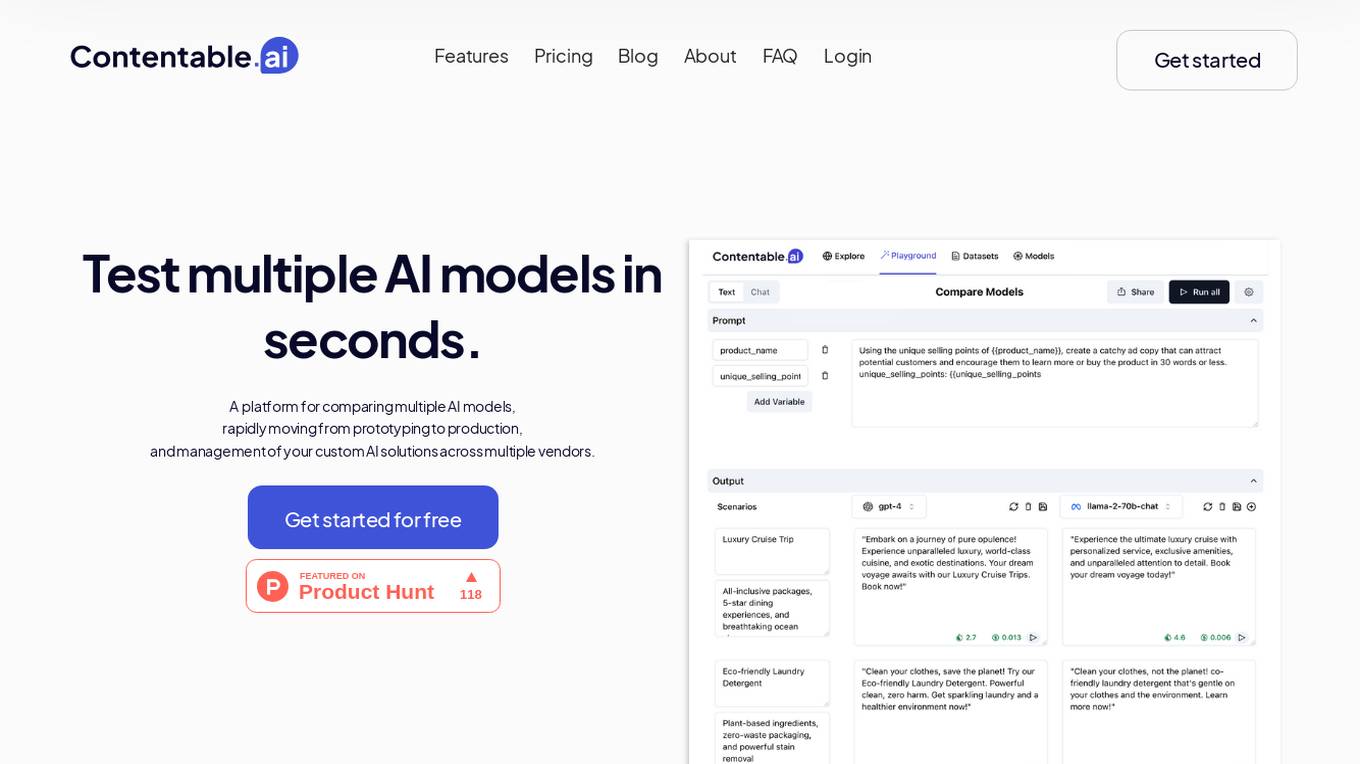
Contentable.ai
Contentable.ai is a platform for comparing multiple AI models, rapidly moving from prototyping to production, and management of your custom AI solutions across multiple vendors. It allows users to test multiple AI models in seconds, compare models side-by-side across top AI providers, collaborate on AI models with their team seamlessly, design complex AI workflows without coding, and pay as they go.

Groq
Groq is a fast AI inference tool that offers GroqCloud™ Platform and GroqRack™ Cluster for developers to build and deploy AI models with ultra-low-latency inference. It provides instant intelligence for openly-available models like Llama 3.1 and is known for its speed and compatibility with other AI providers. Groq powers leading openly-available AI models and has gained recognition in the AI chip industry. The tool has received significant funding and valuation, positioning itself as a strong challenger to established players like Nvidia.
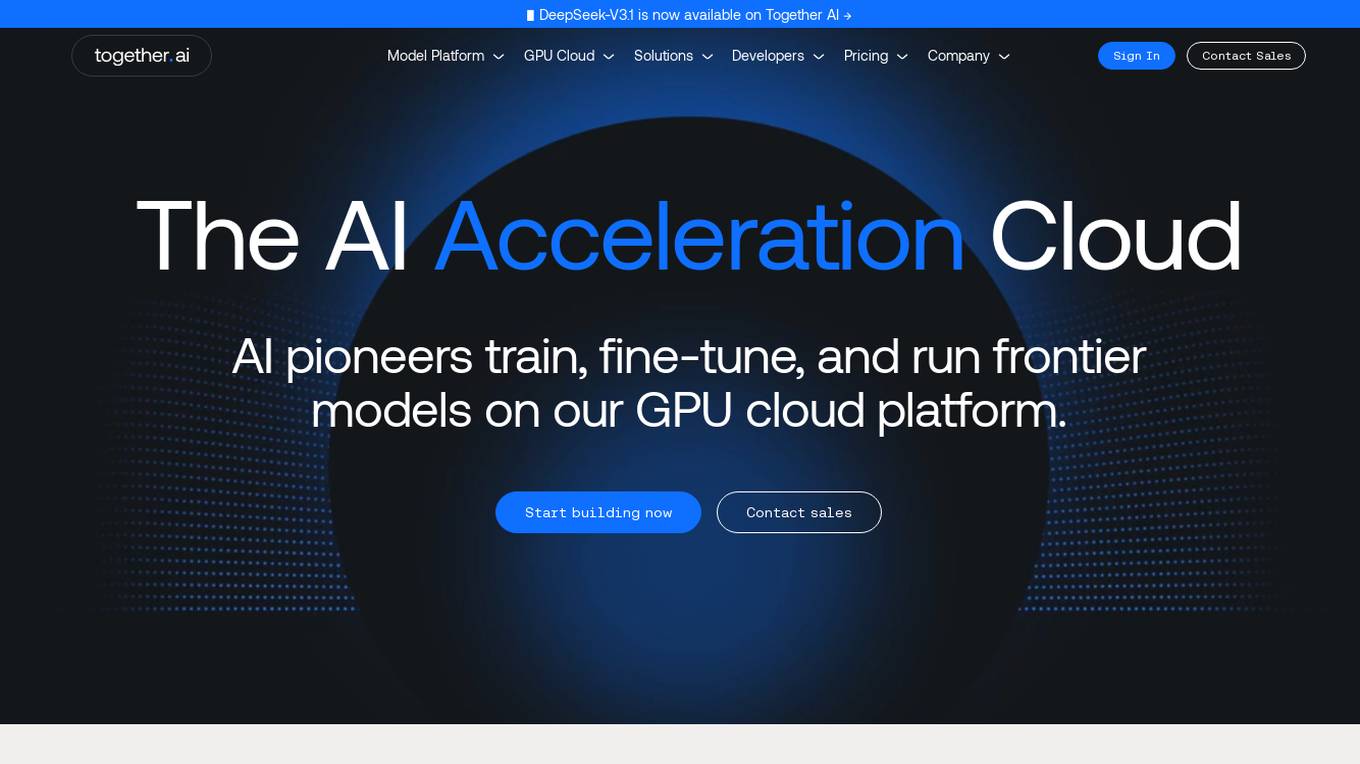
Together AI
Together AI is an AI Acceleration Cloud platform that offers fast inference, fine-tuning, and training services. It provides self-service NVIDIA GPUs, model deployment on custom hardware, AI chat app, code execution sandbox, and tools to find the right model for specific use cases. The platform also includes a model library with open-source models, documentation for developers, and resources for advancing open-source AI. Together AI enables users to leverage pre-trained models, fine-tune them, or build custom models from scratch, catering to various generative AI needs.
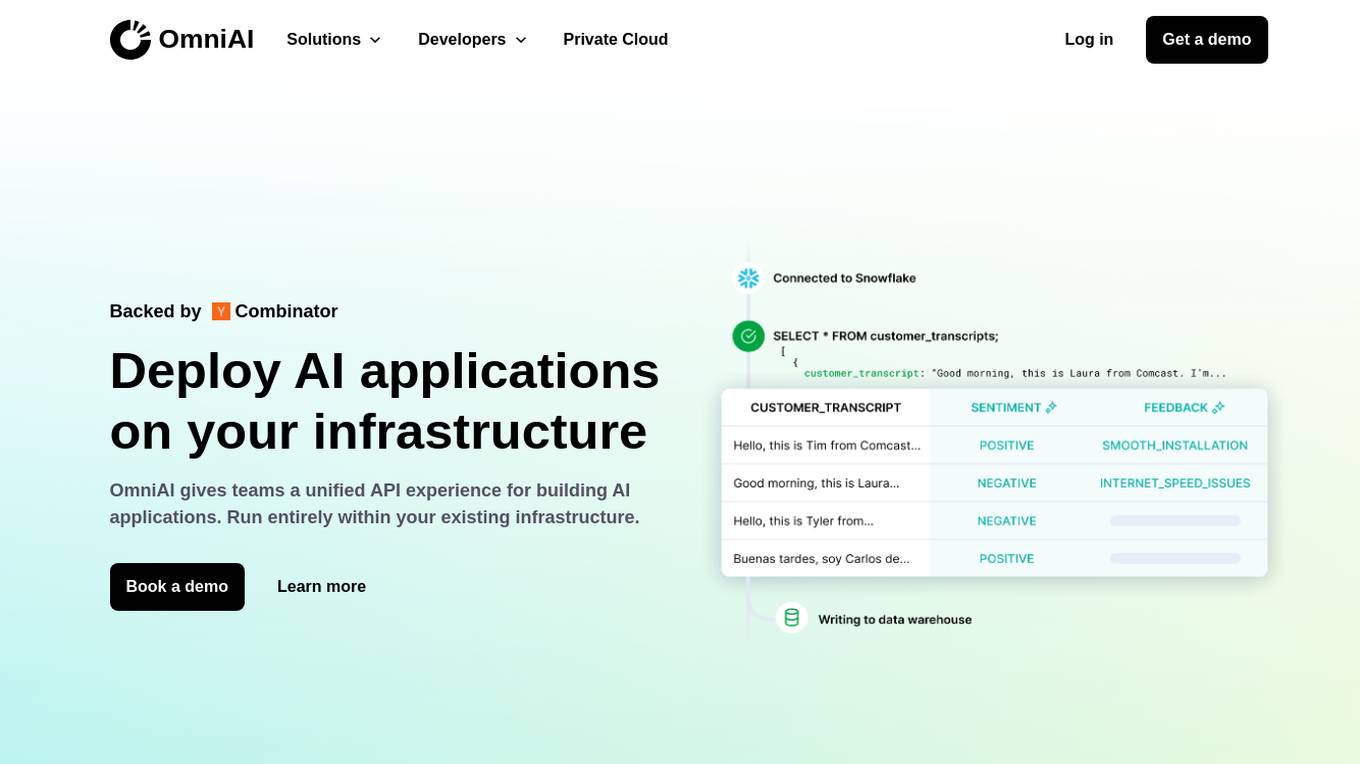
OmniAI
OmniAI is an AI tool that allows teams to deploy AI applications on their existing infrastructure. It provides a unified API experience for building AI applications and offers a wide selection of industry-leading models. With tools like Llama 3, Claude 3, Mistral Large, and AWS Titan, OmniAI excels in tasks such as natural language understanding, generation, safety, ethical behavior, and context retention. It also enables users to deploy and query the latest AI models quickly and easily within their virtual private cloud environment.
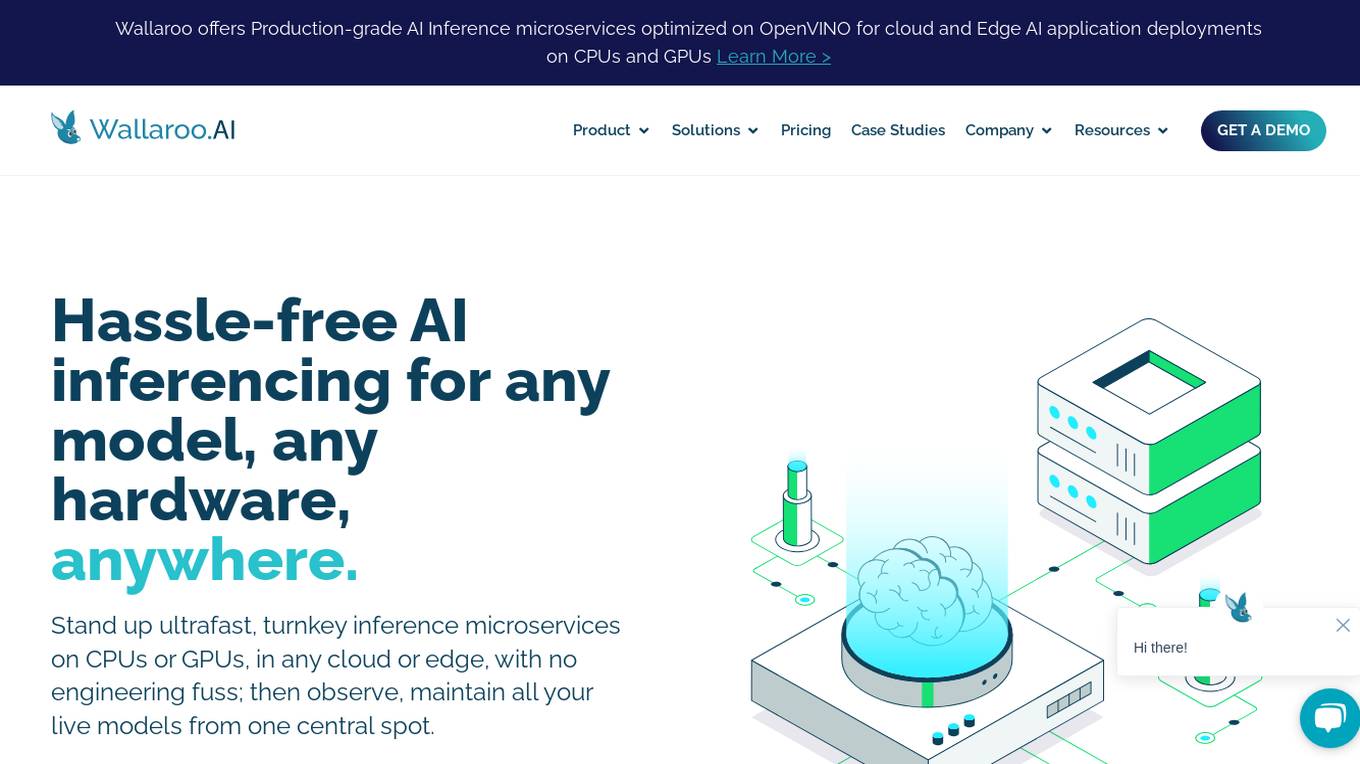
Wallaroo.AI
Wallaroo.AI is an AI inference platform that offers production-grade AI inference microservices optimized on OpenVINO for cloud and Edge AI application deployments on CPUs and GPUs. It provides hassle-free AI inferencing for any model, any hardware, anywhere, with ultrafast turnkey inference microservices. The platform enables users to deploy, manage, observe, and scale AI models effortlessly, reducing deployment costs and time-to-value significantly.
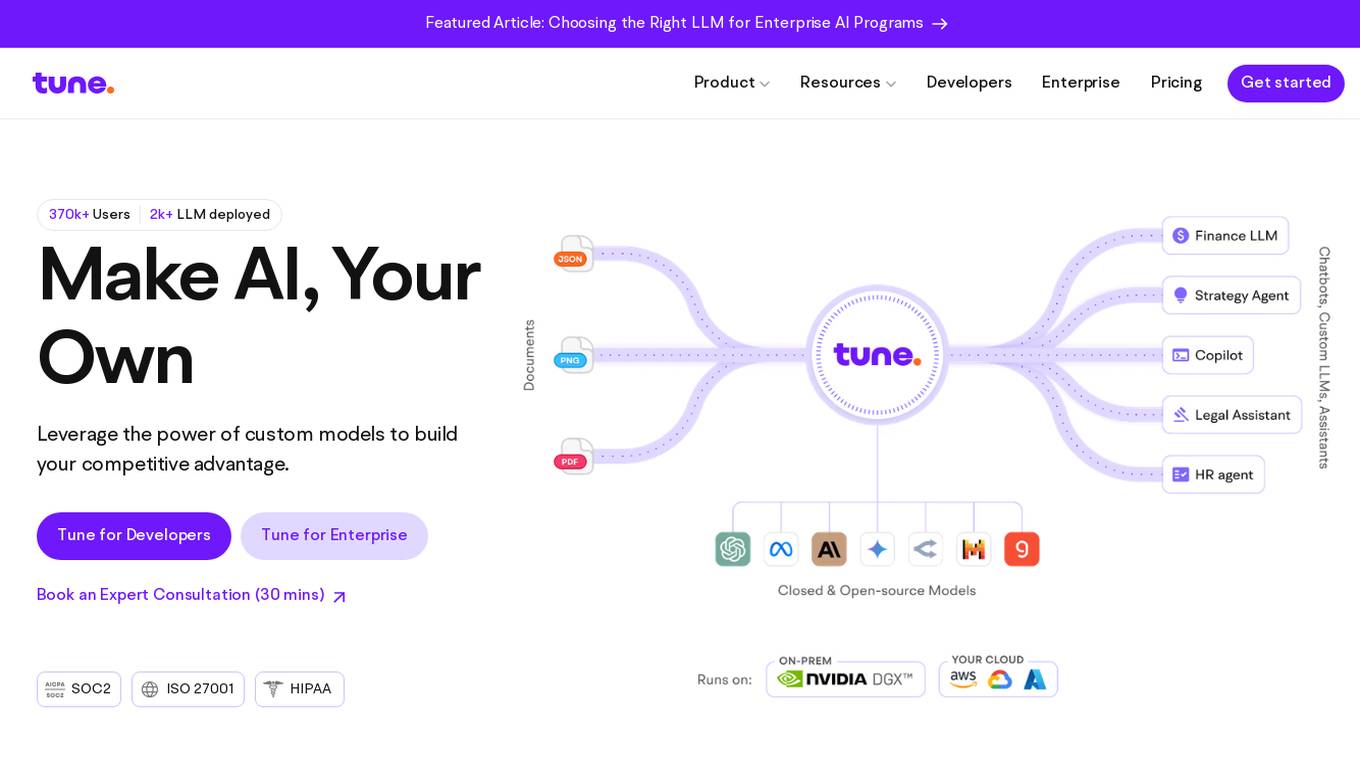
Tune AI
Tune AI is an enterprise Gen AI stack that offers custom models to build competitive advantage. It provides a range of features such as accelerating coding, content creation, indexing patent documents, data audit, automatic speech recognition, and more. The application leverages generative AI to help users solve real-world problems and create custom models on top of industry-leading open source models. With enterprise-grade security and flexible infrastructure, Tune AI caters to developers and enterprises looking to harness the power of AI.
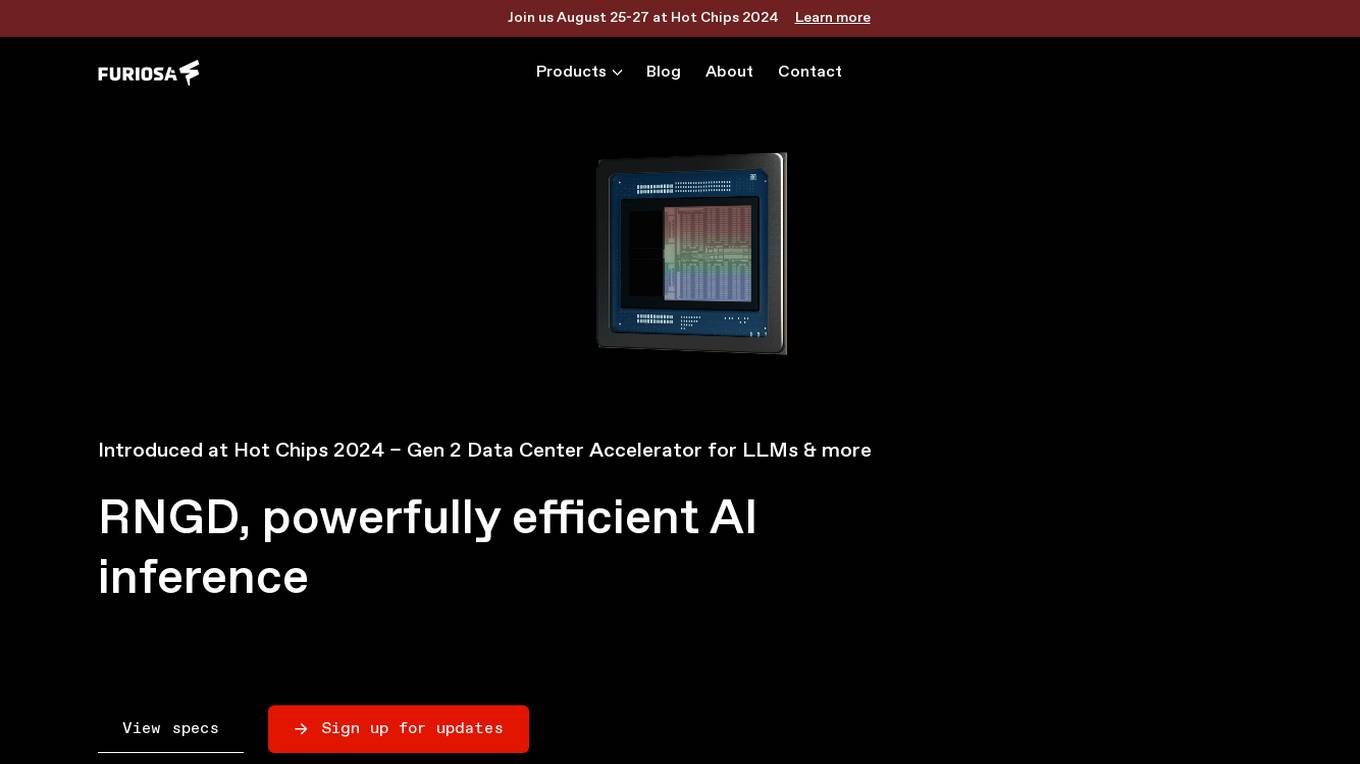
FuriosaAI
FuriosaAI is an AI application that offers Hardware RNGD for LLM and Multimodality, as well as WARBOY for Computer Vision. It provides a comprehensive developer experience through the Furiosa SDK, Model Zoo, and Dev Support. The application focuses on efficient AI inference, high-performance LLM and multimodal deployment capabilities, and sustainable mass adoption of AI. FuriosaAI features the Tensor Contraction Processor architecture, software for streamlined LLM deployment, and a robust ecosystem support. It aims to deliver powerful and efficient deep learning acceleration while ensuring future-proof programmability and efficiency.
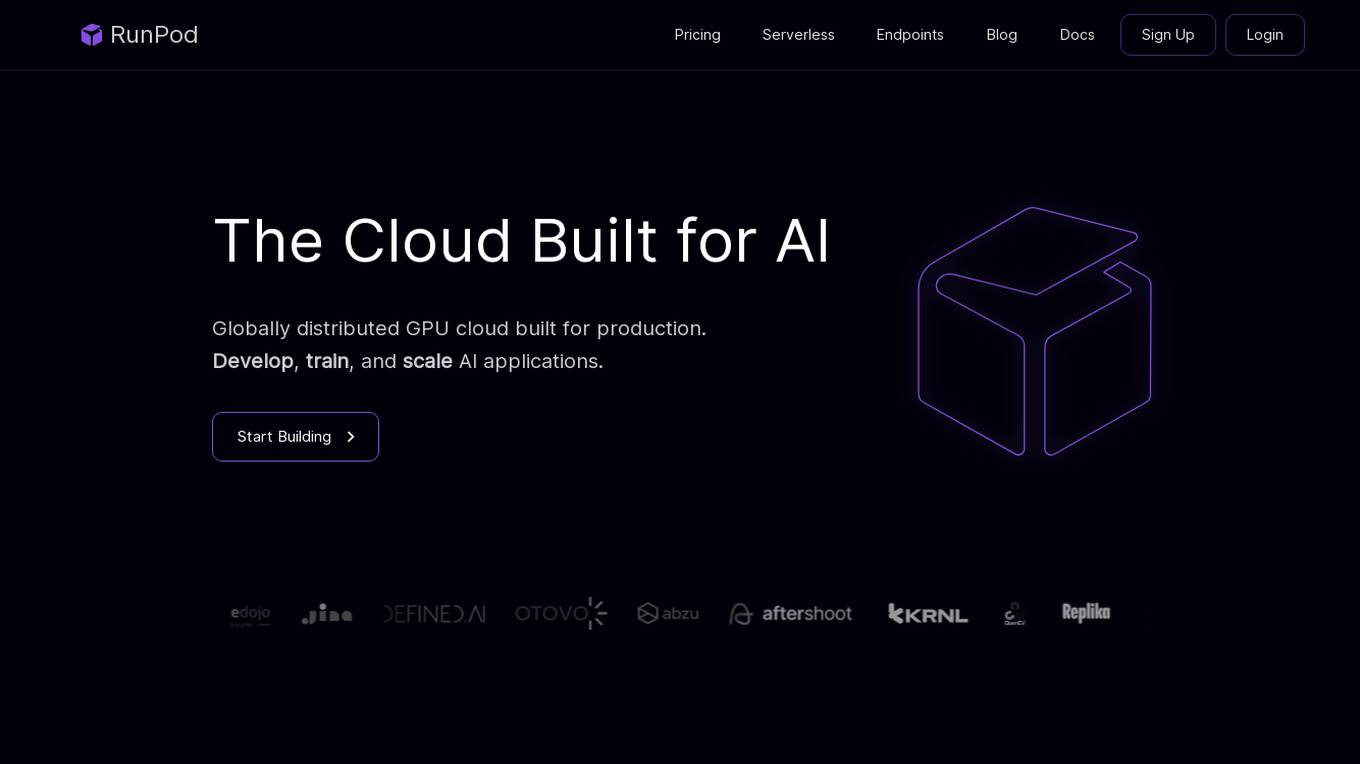
RunPod
RunPod is a cloud platform specifically designed for AI development and deployment. It offers a range of features to streamline the process of developing, training, and scaling AI models, including a library of pre-built templates, efficient training pipelines, and scalable deployment options. RunPod also provides access to a wide selection of GPUs, allowing users to choose the optimal hardware for their specific AI workloads.
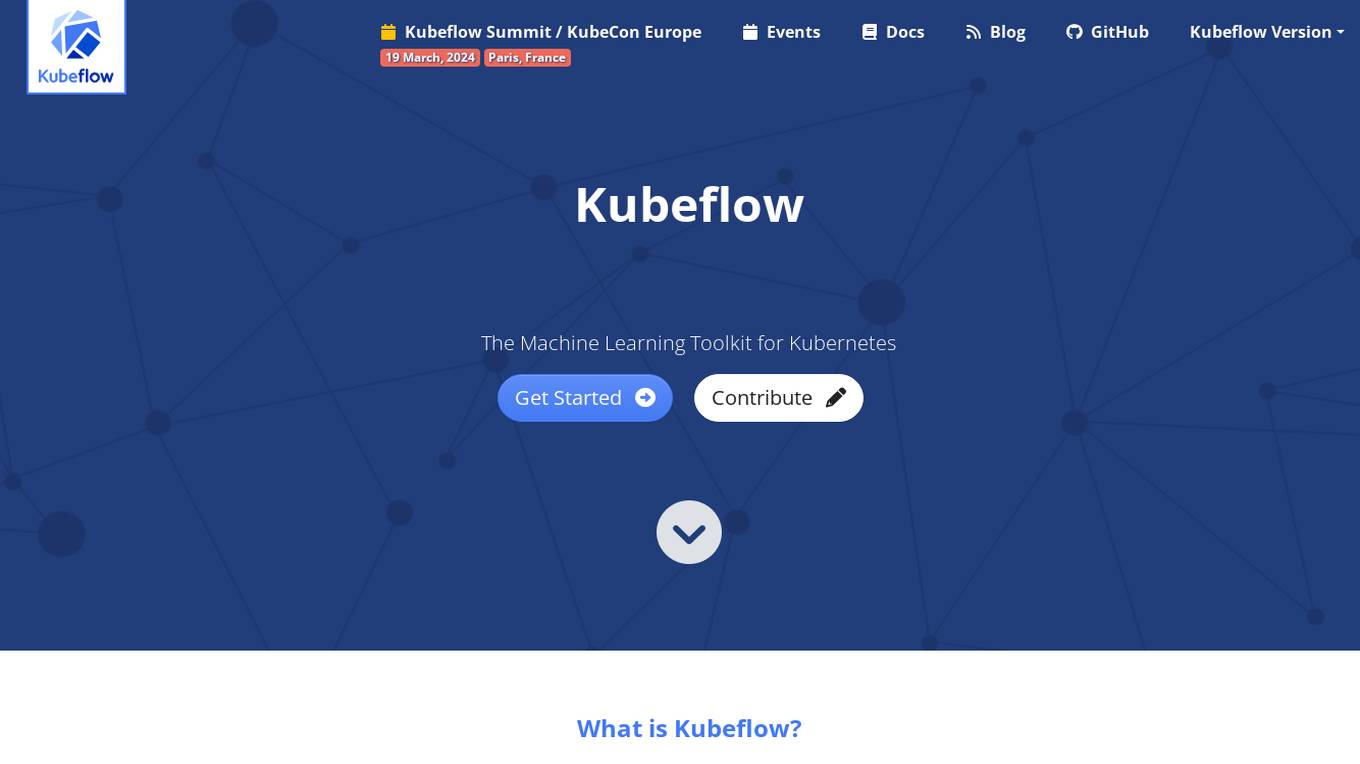
Kubeflow
Kubeflow is an open-source machine learning (ML) toolkit that makes deploying ML workflows on Kubernetes simple, portable, and scalable. It provides a unified interface for model training, serving, and hyperparameter tuning, and supports a variety of popular ML frameworks including PyTorch, TensorFlow, and XGBoost. Kubeflow is designed to be used with Kubernetes, a container orchestration system that automates the deployment, management, and scaling of containerized applications.
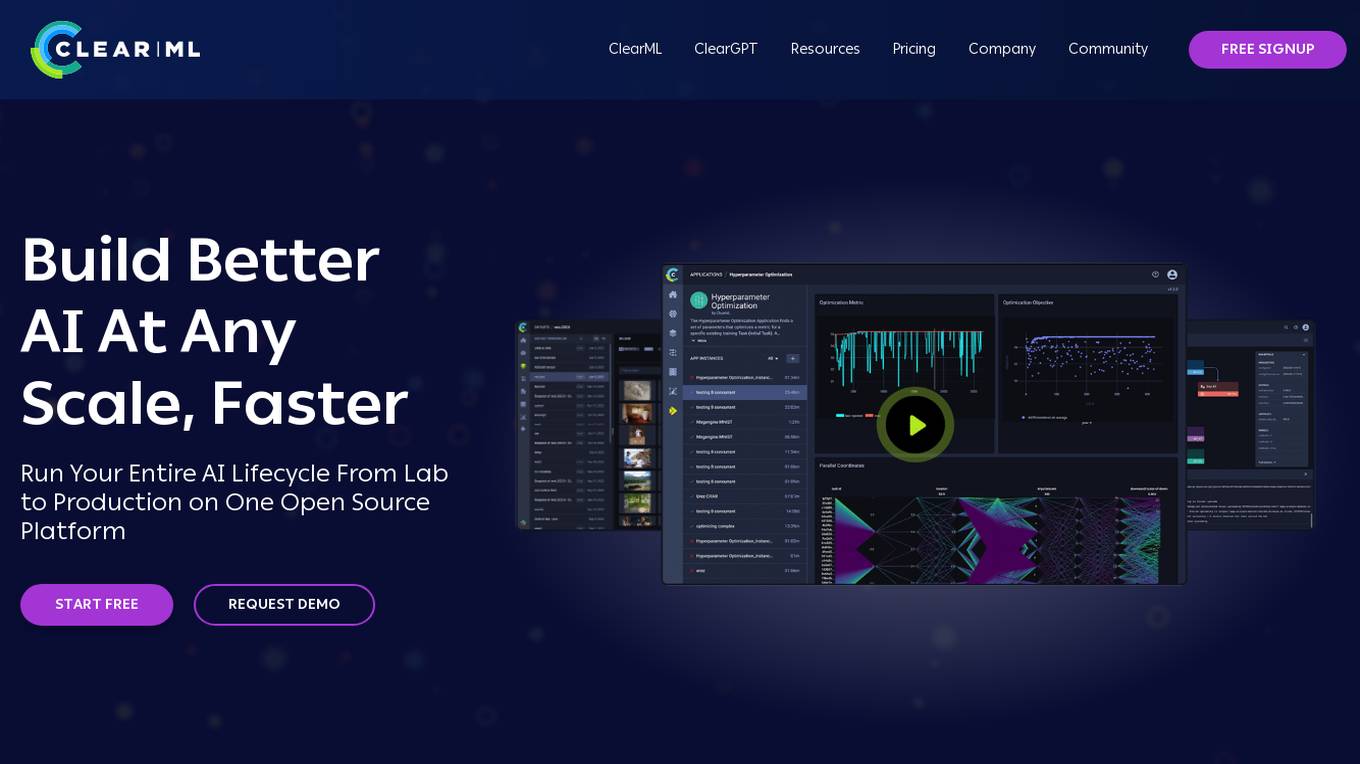
ClearML
ClearML is an open-source, end-to-end platform for continuous machine learning (ML). It provides a unified platform for data management, experiment tracking, model training, deployment, and monitoring. ClearML is designed to make it easy for teams to collaborate on ML projects and to ensure that models are deployed and maintained in a reliable and scalable way.
1 - Open Source AI Tools
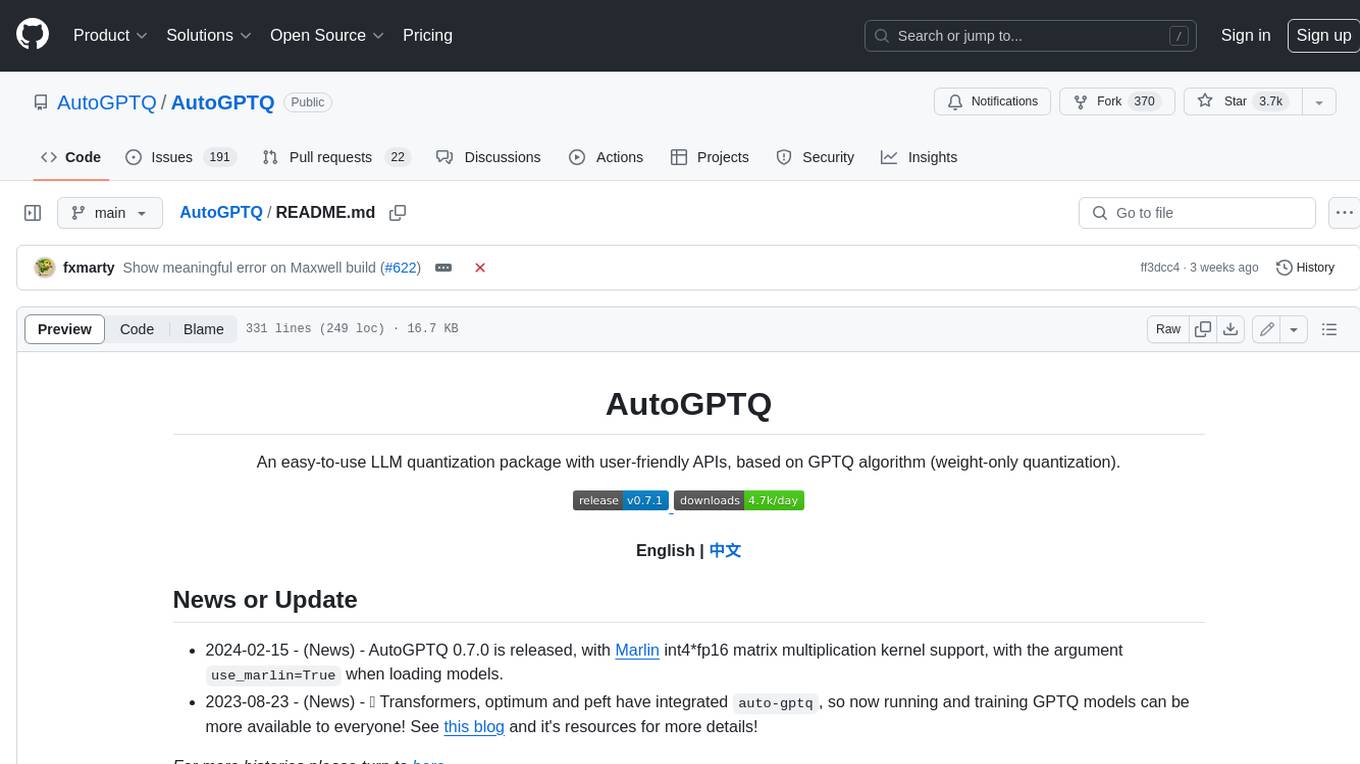
AutoGPTQ
AutoGPTQ is an easy-to-use LLM quantization package with user-friendly APIs, based on GPTQ algorithm (weight-only quantization). It provides a simple and efficient way to quantize large language models (LLMs) to reduce their size and computational cost while maintaining their performance. AutoGPTQ supports a wide range of LLM models, including GPT-2, GPT-J, OPT, and BLOOM. It also supports various evaluation tasks, such as language modeling, sequence classification, and text summarization. With AutoGPTQ, users can easily quantize their LLM models and deploy them on resource-constrained devices, such as mobile phones and embedded systems.
20 - OpenAI Gpts

HuggingFace Helper
A witty yet succinct guide for HuggingFace, offering technical assistance on using the platform - based on their Learning Hub
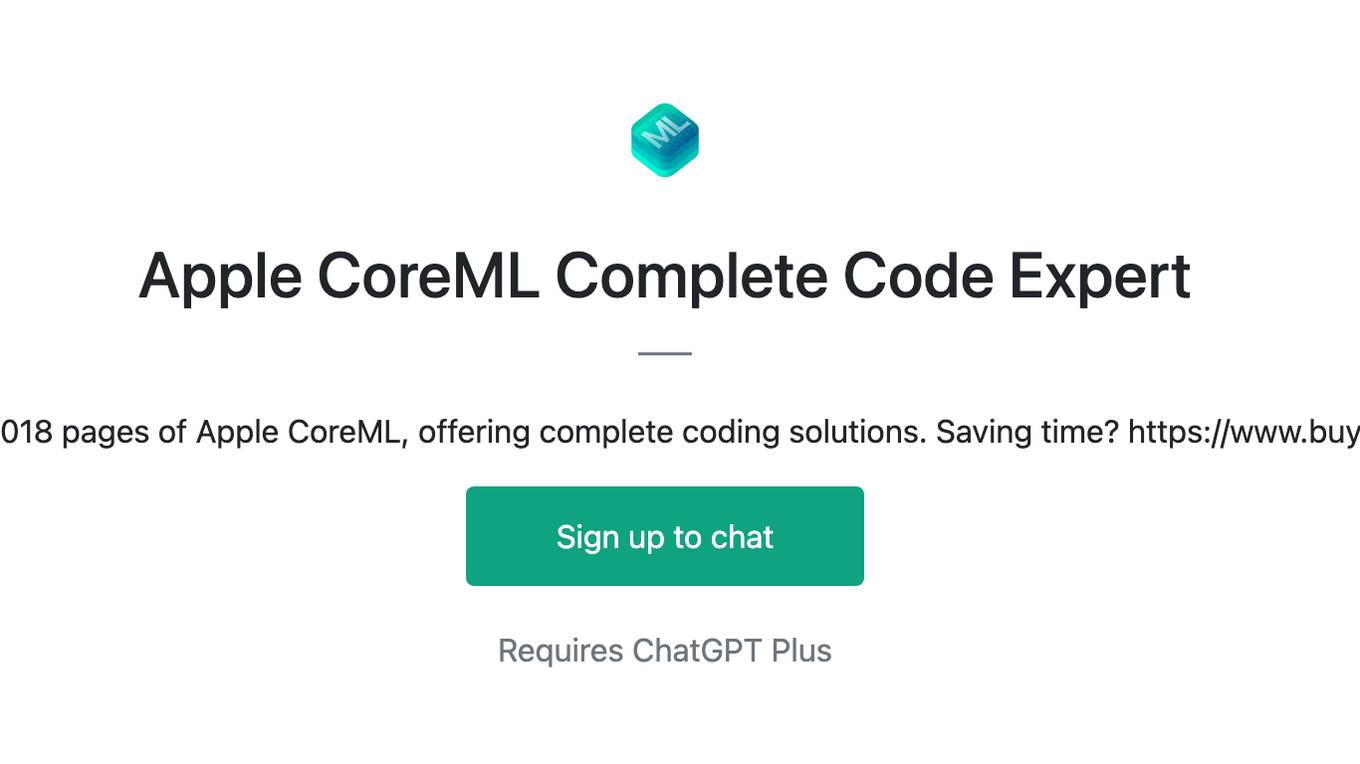
Apple CoreML Complete Code Expert
A detailed expert trained on all 3,018 pages of Apple CoreML, offering complete coding solutions. Saving time? https://www.buymeacoffee.com/parkerrex ☕️❤️
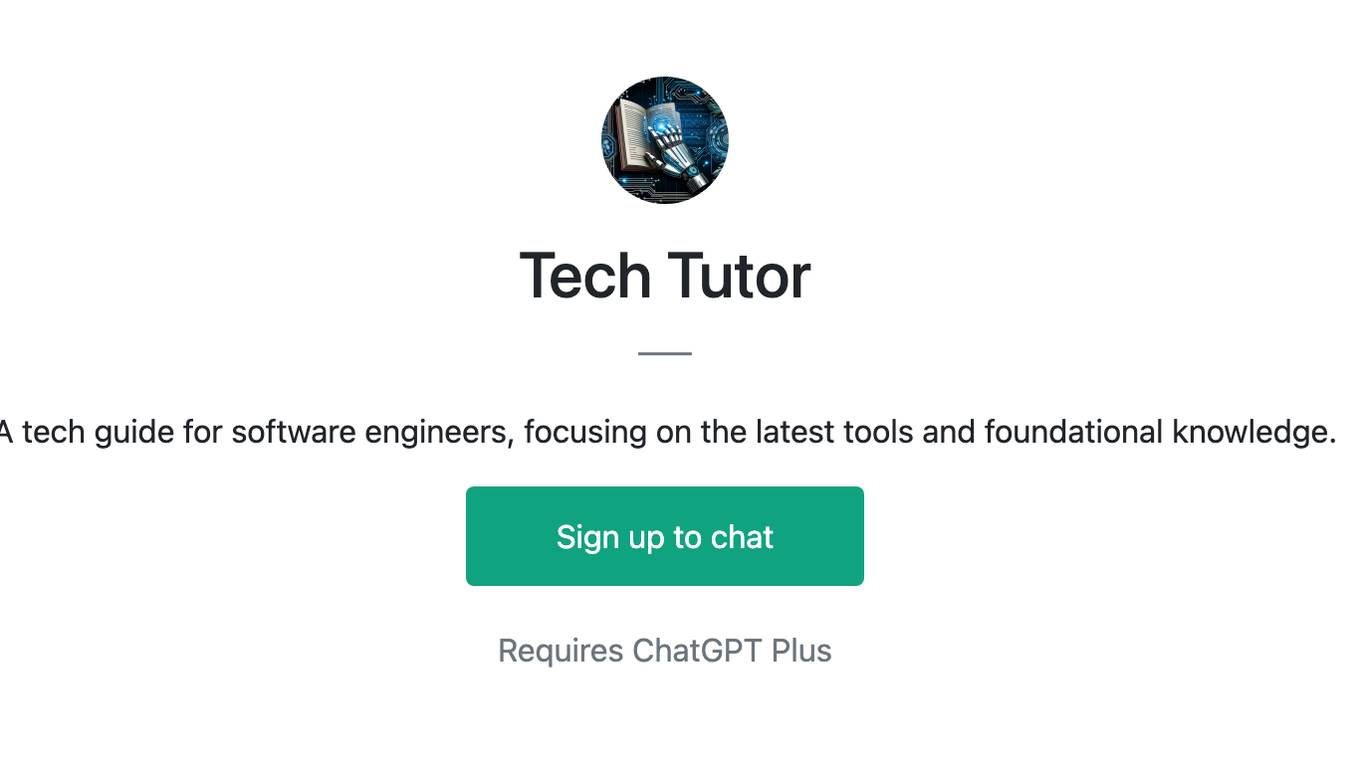
Tech Tutor
A tech guide for software engineers, focusing on the latest tools and foundational knowledge.

Data Engineer Consultant
Guides in data engineering tasks with a focus on practical solutions.

Instructor GCP ML
Formador para la certificación de ML Engineer en GCP, con respuestas y explicaciones detalladas.

TensorFlow Oracle
I'm an expert in TensorFlow, providing detailed, accurate guidance for all skill levels.
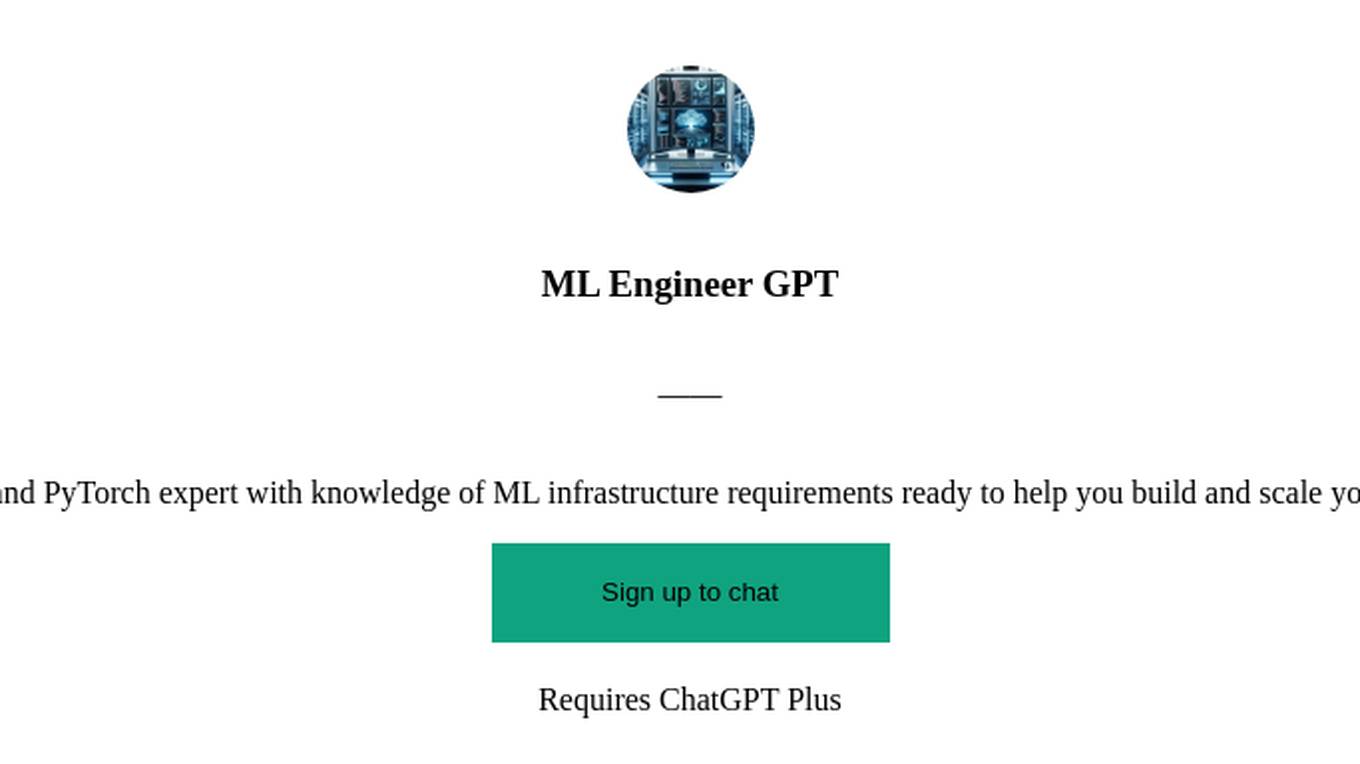
ML Engineer GPT
I'm a Python and PyTorch expert with knowledge of ML infrastructure requirements ready to help you build and scale your ML projects.



